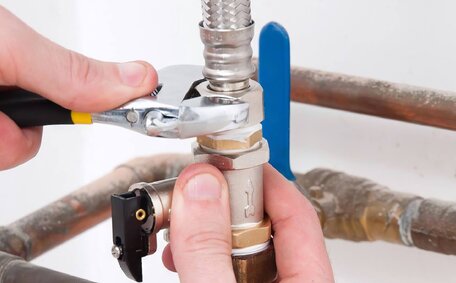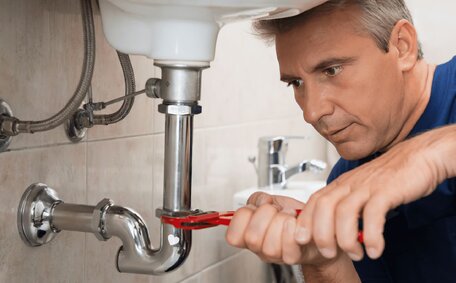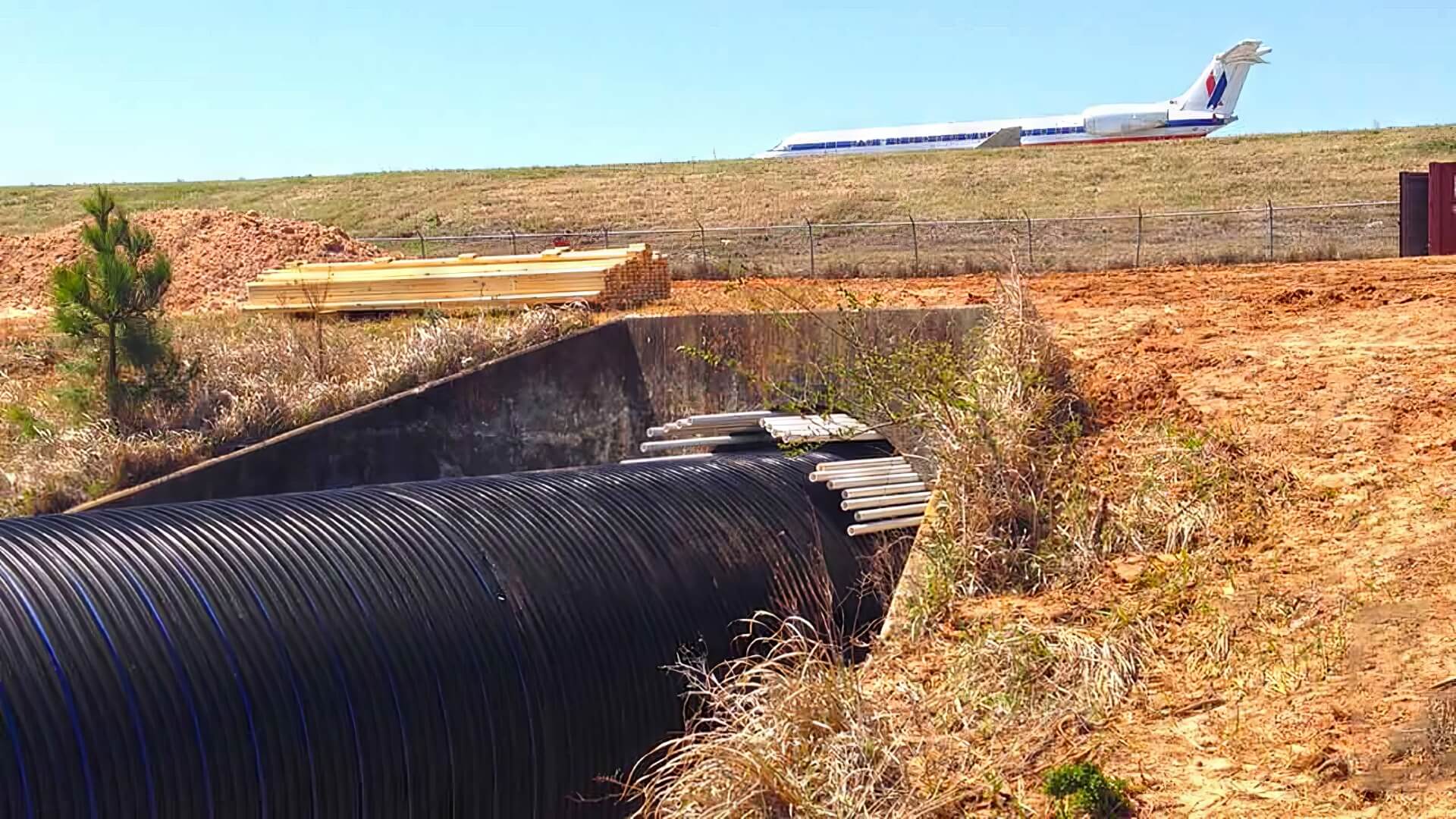
Is a broken tap an emergency?
A broken tap that is causing flooding, water wastage or damage should be treated as a plumbing emergency. Call our 24/7 emergency plumbers for prompt repairs to burst pipes, damaged taps, water leaks and more.
Read MoreA natural gas leak occurs when flammable gases are inadvertently released from gas lines or appliances. Even a minor gas leak can pose serious explosion and health risks in your home. Knowing the steps to detect and address a gas leak is crucial for home safety.
Common causes of gas leaks include weakened connections among others:
Natural gas leaks are hazardous as natural gas is odourless when pure. Mercaptan, an odorant, is added to natural gas to give it a distinct rotten egg smell, aiding leak detection.
Key signs of a gas leak include:
Symptoms such as dizziness, fatigue, difficulty breathing, nausea, and unconsciousness are indicative of carbon monoxide poisoning or oxygen depletion.
A suspected gas leak in your living environment compromises health and safety. Quick action is critical for natural gas safety if you suspect a leak. Understanding potential gas-related risks and knowing how to address a suspect gas leak in your home empowers you to respond appropriately.
There are several noticeable signs that may indicate gas leaks in your home:
Important safety measures when checking for gas leaks include not using any appliances:
Awareness of indicators and detection methods for gas issues around your stove minimises leakage risks. Upon detecting any gas threat, evacuate the area promptly and call for professional help, such as the fire brigade or a licensed gas plumber.
One of the most evident ways to detect a gas leak is by noticing a strong, unpleasant sulphur or "rotten egg" smell. This is due to mercaptans, odorants added to natural gas propane blends to ensure detectability of leaks.
If you smell gas in your home, evacuate immediately and call emergency services from a safe distance. Do not use phones, turn on lights or use gas equipment that could produce a spark inside.
Understanding gas leak scenarios is important as an absence of odour doesn’t necessarily mean a leak is not present. Gas lines may suffer wear over time, and gas leaks can occur unexpectedly. Have your main gas supply inspected annually by a licenced technician to catch any silent leaks building up to risky levels.
Trust your sense of smell when it detects an eggy odour inside your home. This mechanism is crucial to your safety, alerting to the gas smell that signifies an urgent threat - so respond swiftly by exiting and seeking help.
Keep an ear out for any amount of gas leaking which may result in abnormal hissing or whistling sounds coming from gas appliances or lines. This may indicate escaping gas or malfunctioning equipment. The volume and pitch can hint at the leak’s severity.
Stay vigilant for signs of a gas leak, particularly in your kitchen near gas stoves, ovens, water heaters, and other appliances. Tracing noises to their source helps locate potential leakage points for inspection. Tend to loud or high-pitched releases immediately as these suggest greater flow rates.
While sound can confirm leaks, do not rely on it as the only detector. Odorants may fade over time, disabling the scent warning. Annual checks by a certified gas fitter keep risks low as problems area addressed before reaching critical levels.
When an appliance emits strange noises, like heightened hissing, you’ll want to act promptly by turning off your gas and seeking help right away. Technicians can also employ advanced leak detectors to promptly and precisely pinpoint elusive leaks.
Visual inspections near gas lines and appliances can show signs of a gas leak even before odours or sounds are noticeable. Signs to look out for include:
These sightings are potential indications of a gas leak and necessitate an urgent response. Wise steps to manage leaks include monitoring for gas air mixes that suggest abnormal appliance functionality, discolouration, or compromised supply lines.
While gas infrastructure resides underground, visual checks above offer warnings. Couple this with annual inspections by certified technicians to stay vigilant about risks.
If any leak signs manifest, evacuate your family and pets from the area straight away and call a qualified gas plumber. Call emergency services to report gas concerns and address the situation safely. Only return home when given the all-clear by professionals.
Exposure to gas leaks can have serious health consequences. The greatest health risks include oxygen depletion and carbon monoxide poisoning.
Oxygen deficiency occurs when leaking gas saturates the air, displacing breathable oxygen. Fatigue and dizziness as early symptoms should prompt you to seek fresh air and medical attention at once. If not addressed, this condition may result in loss of consciousness or even death by suffocation.
Carbon monoxide, a toxic byproduct present when there is a gas leak, is contained in some fuel types. Carbon monoxide poisoning impairs the blood’s oxygen transport, leading to gradual suffocation of tissues and organs.
Early symptoms mirror oxygen deficiency. Prolonged exposure causes neurological and cardiovascular damage, or death.
In the event gas exposure escalates, other potential health impacts include:
Annually, over 20,000 people visit the emergency room due to carbon monoxide poisoning. Exposure is linked to over 400 deaths per year in the US.
If anyone suffers the described symptoms unexpectedly, especially combined with other gas leak indicators, evacuate immediately and seek medical help. Stress the hazard’s urgency when calling emergency services.
Prompt action offers the best chance for recovery and survival. Do not re-enter an area suspected of leakage until gas fitters declare it safe.
If you suspect gas leak your, follow these steps immediately:
Gas leaks must be dealt with promptly by professionals to reduce risks. North Ryde Plumbing offers 24/7 emergency response from skilled gas fitters equipped to inspect the source leak, conduct repairs and ensure compliance with all safety guidelines.
There are several ways to detect gas leak incidents effectively in your household:
Perform soapy water examinations with a brush or spray bottle on the suspected areas to assess the integrity of your gas system. Bubbles will form on the liquid’s surface, helping you identify gas leaking from the suspected area. This simple, affordable method swiftly confirms or dispels concerns about propane natural gas leaks in your home.
Advanced gas leak detectors can identify leaks by sensing air concentrations inside your home.
Portable, battery-powered models are ideal as they can promptly use gas leak detectors, including for other natural gas varieties, at hazardous levels. Use a gas leak detector routinely to survey appliances and pipes, which is key to detect gas leak scenarios in your environment.
Connected home devices continuously monitor gas levels. They link via WiFi to smartphones to immediately alert owners of readings of concern. This 24/7 monitoring ensures leaks get addressed before endangering safety.
Make sure to contact a licenced professional like North Ryde Plumbing if you confirm a leak impacting your hot water system. Our technicians will employ the latest tools and methods to inspect the issue and remedy it compliant with all standards.
All gas leaks should be addressed by licensed professionals. Attempting DIY repairs on gas systems risks injury, explosion or inadequate fixes leaving lingering dangers.
Certified gas fitters have extensive training and understanding of the complex infrastructure and strict regulations. North Ryde Plumbing’s team holds all required qualifications to legally and safely conduct services including:
Annual inspections by gas professionals can mitigate risks and potentially lower gas bills over time. They will conduct rigorous gas detection, adjust fittings, clear obstructions and service appliances.
For guaranteed workmanship conducted legally to Australian plumbing standards, contact our team on 1300 349 338 whenever gas faults appear. Stay vigilant and involve certified experts.
Be proactive to prevent gas mishaps by safeguarding your home from hazardous leaks and remain attentive to signs of gas line abnormalities, calling a professional for periodic visual checks. To prevent gas leaks, arrange for a professional inspection and servicing annually, where technicians will utilise advanced leak detection techniques.
Look and listen for signs of problems. Clear debris around external vents to prevent blockages. Look and listen for signs of problems.
Exercise caution around gas-driven systems, such as your air conditioner, to prevent accidental leaks. When renovating, When using your property’s gas systems for renovations, always use qualified tradespeople to move or alter gas elements. Replace old metal pipes with less corrosion-prone materials. Install protective casing outdoors.
When excavating outdoors, carefully check sites first and enrol in Dial Before You Dig to avoid striking pipes.
Educate household members on leak signs and emergency steps, including where the main gas valve is located.
Place gas detector alarms in at-risk areas for monitoring. Stay alert and response-ready by understanding risks. With vigilance and proper maintenance, gas dangers can remain safely controlled.
This prevents overlooked issues from causing repeat emergencies. Consider installing gas detectors for ongoing monitoring.
Have your gas network fully inspected by professionals to identify and properly repair all faults before restoring supply. Once the immediate danger of a gas leak has passed, important next steps remain.
Air out the property over 2-3 days after technicians certify it safe to improve air quality.
Discard exposed food and medicines, as gases can contaminate them. Schedule a medical checkup for anyone experiencing symptoms to assess health impacts. Monitor for recurring effects like headaches.
If damage was extensive or repairs prolonged, make alternative accommodation arrangements where possible during repair works. Upon returning home, check all appliances function normally. Reach out to North Ryde Plumbing on 1300 349 338 for assistance getting your gas system safely restored.
A broken tap that is causing flooding, water wastage or damage should be treated as a plumbing emergency. Call our 24/7 emergency plumbers for prompt repairs to burst pipes, damaged taps, water leaks and more.
Read MoreBurst pipes, blocked toilets, sewer backups and lack of hot water are among the most common residential plumbing emergencies that require urgent attention from a professional plumber. If you experience any of these issues, call our 24/7 North Ryde emergency plumbers right away for fast, reliable service.
Read MoreTo determine if a relined pipe meets safety standards, professionals use equipment like CCTV cameras and hydrostatic pressure tests. Relining pipes is an affordable, non-invasive alternative to full replacement that can extend pipe lifespan 50+ years if done properly.
Read MoreNorth Ryde, 2113 NSW
We will call back as soon as possible.




